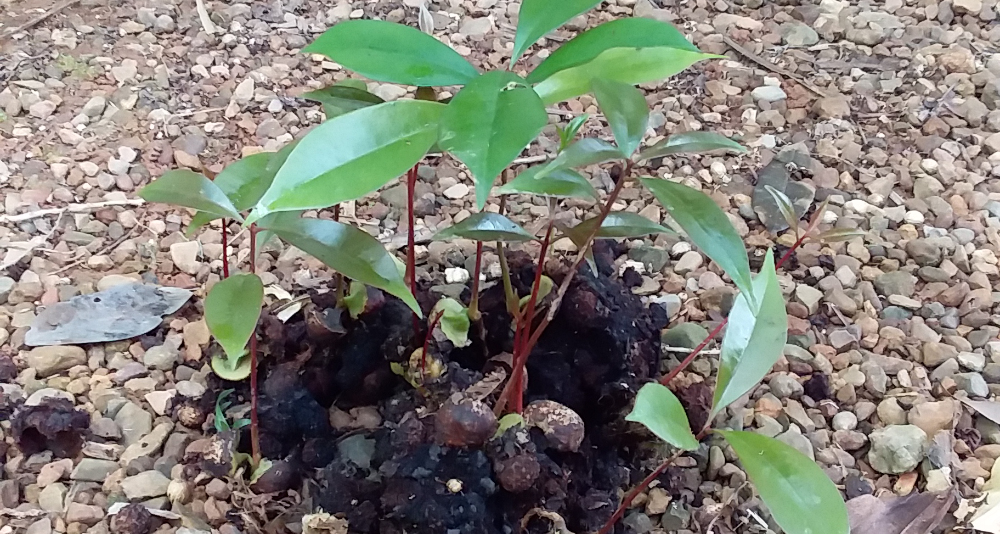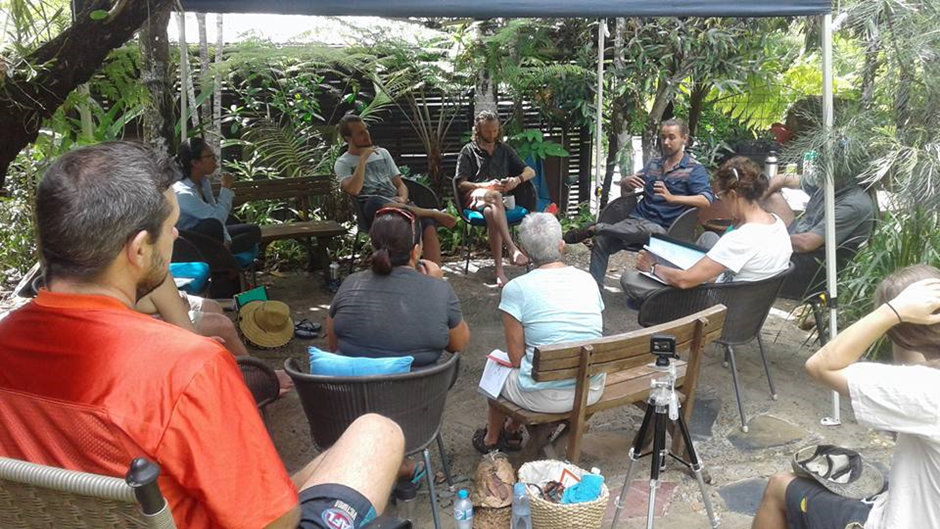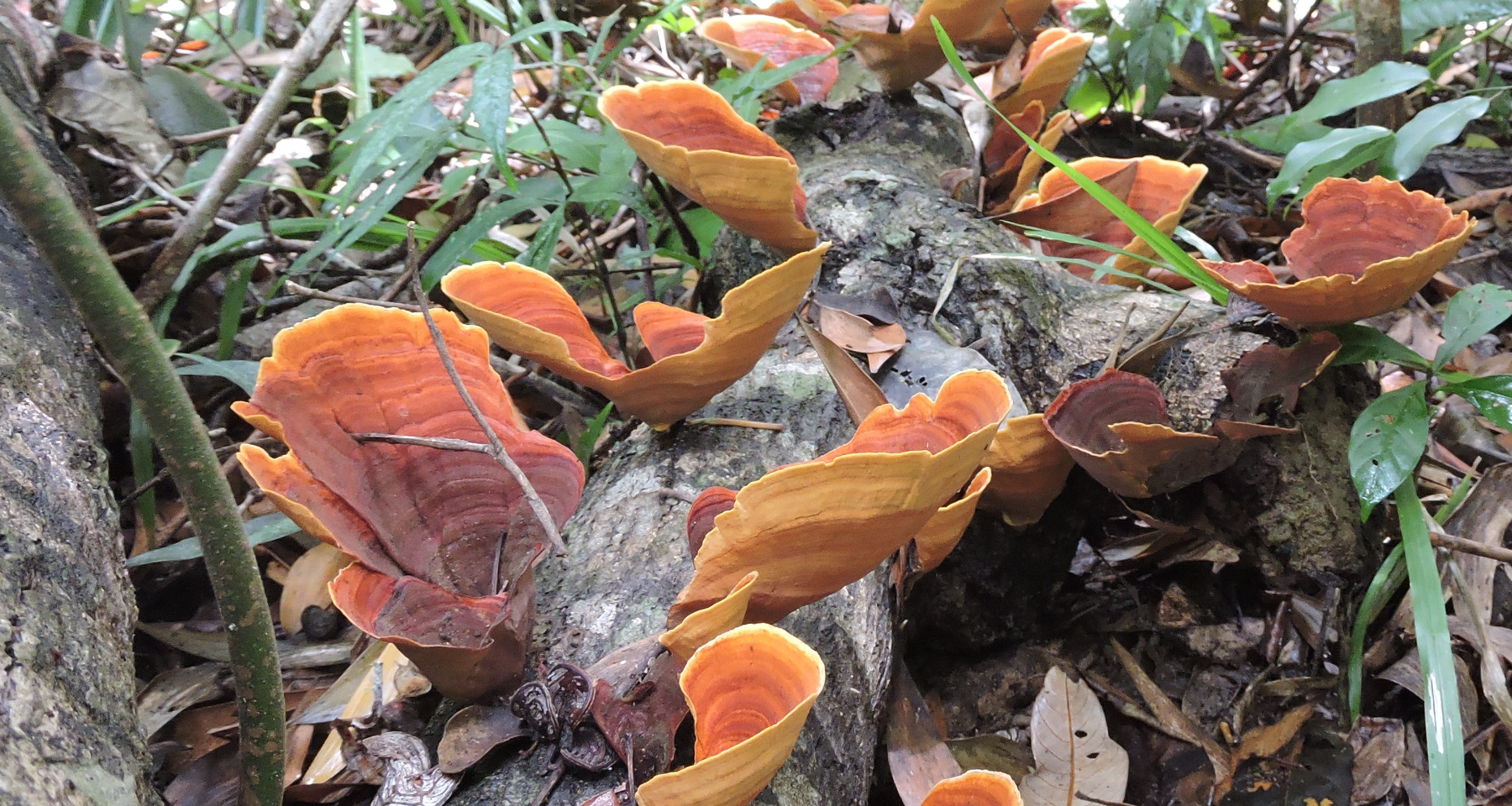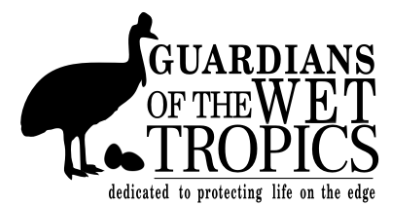
Sustainable agriculture
We recognise, respect, and include rainforest Aboriginal people, the Traditional Owners, as first “guardians” of the rainforest.
Background: Approx 350,000 people live within fifty kilometres of the World Heritage boundary. These “neighbours” can make a real and positive difference to the successful outcomes of threatened and endangered ecosystems and species.

Hosting a Food Forestry Course
Modern monoculture farming practice are proving to not protect or enhance the local environment. It can damage soil health, water quality and does not lead to sustainable successful land use practices nor are they helpful to long term financial running of many farms many relying on subsidies from State and Federal Government.
We need to acknowledge and support farmers in transitioning to best practice farming techniques to grow food and nourish community.
The Green Ant, Johnstone River Community Garden logo symbolizes how an individual, with support, can build and be part of a healthy and vibrant community. The JRCG has 5 enactments- Recycling, Low food miles FNQ Community Exchange, Low carbon emissions, Carbon sequestration, Community education and wellbeing. As Guardians we thoroughly support their vision and wish to build on our partnerships as Guardians with Community Garden Groups across the region.
 Recycling food to waste into compost bins is a great place to meet like minded people.
Recycling food to waste into compost bins is a great place to meet like minded people.
There is a resurgence by Traditional Owners to restore bush foods and medicines endemic to their local country and thus healing the country and its people. We can also speak to local traditional people about what bush tucker would be good to grow in our back yard.
Many of our Guardians also practice a range of sustainable farming practices on their properties which we support.
- Indigenous Forests (Food, Fibre, Medicine)*
- Permaculture
- Biodynamics
- Syntropics
- Food Forestry
- Regenerative Agriculture**
- Rare Fruits
- Seed Savers
* There is a resurgence by Traditional Owners to restore bush foods, fibres and medicines endemic to their local country, and thus healing the country and its people.
** Charles Massey’s book “Return of the Reed Warblers” asks- Is it too late to regenerate the earth? Call of the Reed Warbler shows the way forward for the future of our food supply, our landscape and our planet. It is a story of how a grassroots revolution-true underground insurgency-can save the planet, help turn climate change around and build healthy people and healthy communities, pivoting significantly on our relationship with growing and consuming food was very inspiring and has created a large following and in so repairing landscapes and water tables across the country.
The Seeds of Vandana Shiva
How did the willful daughter of a Himalayan forest conservator become Monsanto’s worst nightmare? The Seeds of Vandana Shiva tells the remarkable life story of Gandhian eco-activist Dr. Vandana Shiva, how she stood up to the corporate Goliaths of industrial agriculture, rose to prominence in the regenerative food movement, and inspired an international crusade for change.
